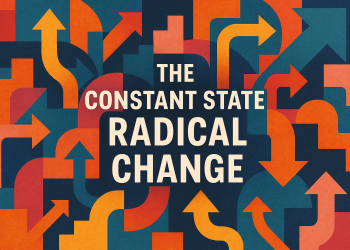Life transitions like divorce or family breakdown can deeply affect productivity, focus, and team dynamics in the workplace.
Supportive work environments require thoughtful policies and resources. Agile organisations recognise that personal crises need flexibility and practical support, with some Leicester businesses already offering compassionate leave, flexible schedules, and directories of local family law specialists.
Personal legal matters are often overlooked in workplace wellbeing strategies. While many companies address physical health, few provide structured support for legal challenges such as divorce or custody. Forward-thinking organisations bridge this gap by acknowledging personal transitions and offering tailored resources, including practical approaches on supporting employees through divorce.
How Life Transitions Affect Workplace Performance
When employees experience major life changes like divorce, their work often suffers in noticeable ways. Managers might observe increased absences, missed deadlines, or unusual errors from previously reliable team members.
The mental toll of divorce can affect cognitive functioning. Staff experiencing personal separation may report difficulty concentrating and making decisions.
Financial concerns frequently add to these issues. Legal proceedings can be costly, creating financial anxiety that follows employees to work.
Managing Workload and Time Constraints
Time constraints often pose practical issues for staff facing family transitions. Court hearings, legal consultations with family lawyers in Leicester, and unexpected changes in childcare arrangements may overlap with work hours.
Organisations can reduce these pressures through adjustable work schedules. This allows employees to shift hours or work remotely when necessary. Encouraging advanced communication about legal appointments helps managers arrange temporary task coverage or coordinate team calendars.
Supporting Social Dynamics at Work
During personal crises, workplace social patterns may shift. Colleagues often feel unsure how to help, which can lead to awkward interactions or isolation, reducing an employee’s sense of belonging.
Building Effective Support Systems for Employees
Flexible arrangements – as adjustable hours, remote work, or compressed weeks – form the foundation of support systems. They allow staff to handle legal appointments without overusing leave.
Clear compassionate leave policies provide much-needed breathing space during the most intense times of personal crisis. Companies with forward-looking approaches offer specific leave categories for life transitions. These policies show that such events require dedicated time away from work responsibilities.
Confidential Support and Local Resources
Confidential support channels are important for employees who may feel uncomfortable discussing personal matters with direct managers. Human resources professionals trained in sensitive conversations can provide a safe space for staff to explain their situation and access resources.
Region-specific legal professionals offer specialised guidance, with Leicester firms providing flexible consultation options, including virtual meetings.
Manager Training and Employee Wellbeing
Manager training should focus on recognising distress signals, offering supportive dialogue, and making reasonable adjustments. Emphasising confidentiality and compassionate boundaries helps HR leaders support staff through transitions.
Practical Workplace Policies That Make a Difference
Flexible scheduling options stand among the most helpful policies for employees dealing with divorce. Allowing staff to adjust start and end times or work remotely helps them attend legal consultations without depleting annual leave.
Temporary workload adjustments provide breathing space during acute transition periods. Managers can redistribute non-urgent projects, extend deadlines where possible, or bring in additional support for time-sensitive tasks. These adjustments should be documented with clear timelines for review.
Protecting Privacy and Providing Financial Resources
Clear confidentiality protocols protect employee privacy during vulnerable periods. HR departments should create clear guidelines about what information gets shared, with whom, and under what circumstances. These protocols help prevent workplace gossip while ensuring managers have enough context to provide support.
Return-to-work support helps employees reintegrate after extended absences related to family transitions. Phased returns, check-in meetings, and temporary adjustments ease this process while monitoring wellbeing. This approach respects that recovery from major life changes happens gradually.
Financial wellbeing resources address a common concern during divorce proceedings. Companies can support employees through financial stress by offering access to budgeting tools, benefit guidance, or salary advances for urgent needs.
Measuring the Impact of Supportive Workplace Cultures
Organisations can track several key performance indicators to assess their transition support programmes. Metrics like absenteeism rates, productivity levels, and engagement scores provide useful data. Companies can use these metrics to evaluate the effectiveness of their support initiatives over time.
Employee retention during life transitions offers another important metric. Retaining skilled staff through challenging periods can help companies avoid the significant costs associated with recruitment and training.
Tracking Recovery and Gathering Feedback
Productivity recovery timelines reveal how quickly employees return to baseline performance with the right support. Without structured assistance, employees may take a significant amount of time to fully recover from major transitions like divorce.
Cost-benefit analyses suggest there can be financial advantages to supporting employees through personal challenges. Some organisations have reported positive returns on investment from their transition support programmes, with savings in recruitment costs, reduced absenteeism, and maintained productivity helping to offset programme expenses.
Creating a truly supportive workplace means seeing employees as whole people, not just workers. When organisations recognise the impact of personal transitions and respond with empathy, structure, and flexibility, everyone benefits. It’s not just about reducing absenteeism or boosting retention. It’s about building a culture where people feel safe to show up fully, even during life’s hardest seasons. Small policy changes can have a lasting human impact.













